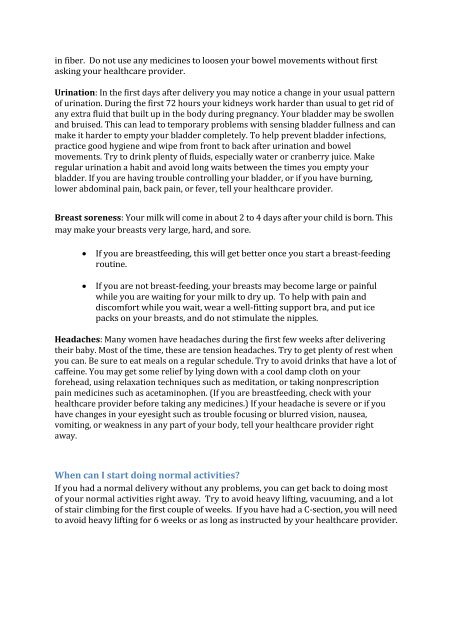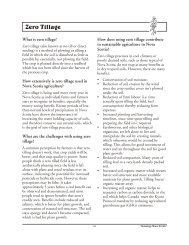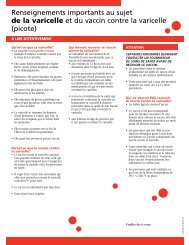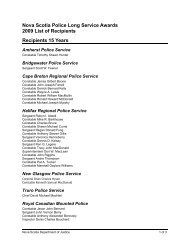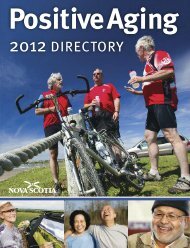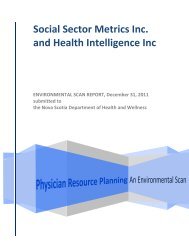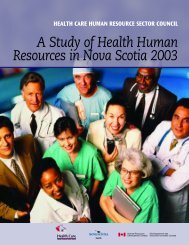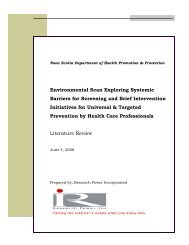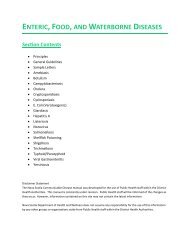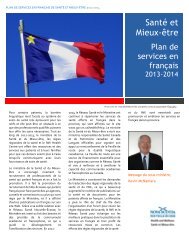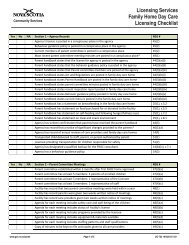Postpartum Care.pdf - 811
Postpartum Care.pdf - 811
Postpartum Care.pdf - 811
You also want an ePaper? Increase the reach of your titles
YUMPU automatically turns print PDFs into web optimized ePapers that Google loves.
in fiber. Do not use any medicines to loosen your bowel movements without first<br />
asking your healthcare provider.<br />
Urination: In the first days after delivery you may notice a change in your usual pattern<br />
of urination. During the first 72 hours your kidneys work harder than usual to get rid of<br />
any extra fluid that built up in the body during pregnancy. Your bladder may be swollen<br />
and bruised. This can lead to temporary problems with sensing bladder fullness and can<br />
make it harder to empty your bladder completely. To help prevent bladder infections,<br />
practice good hygiene and wipe from front to back after urination and bowel<br />
movements. Try to drink plenty of fluids, especially water or cranberry juice. Make<br />
regular urination a habit and avoid long waits between the times you empty your<br />
bladder. If you are having trouble controlling your bladder, or if you have burning,<br />
lower abdominal pain, back pain, or fever, tell your healthcare provider.<br />
Breast soreness: Your milk will come in about 2 to 4 days after your child is born. This<br />
may make your breasts very large, hard, and sore.<br />
If you are breastfeeding, this will get better once you start a breast-feeding<br />
routine.<br />
If you are not breast-feeding, your breasts may become large or painful<br />
while you are waiting for your milk to dry up. To help with pain and<br />
discomfort while you wait, wear a well-fitting support bra, and put ice<br />
packs on your breasts, and do not stimulate the nipples.<br />
Headaches: Many women have headaches during the first few weeks after delivering<br />
their baby. Most of the time, these are tension headaches. Try to get plenty of rest when<br />
you can. Be sure to eat meals on a regular schedule. Try to avoid drinks that have a lot of<br />
caffeine. You may get some relief by lying down with a cool damp cloth on your<br />
forehead, using relaxation techniques such as meditation, or taking nonprescription<br />
pain medicines such as acetaminophen. (If you are breastfeeding, check with your<br />
healthcare provider before taking any medicines.) If your headache is severe or if you<br />
have changes in your eyesight such as trouble focusing or blurred vision, nausea,<br />
vomiting, or weakness in any part of your body, tell your healthcare provider right<br />
away.<br />
When can I start doing normal activities<br />
If you had a normal delivery without any problems, you can get back to doing most<br />
of your normal activities right away. Try to avoid heavy lifting, vacuuming, and a lot<br />
of stair climbing for the first couple of weeks. If you have had a C-section, you will need<br />
to avoid heavy lifting for 6 weeks or as long as instructed by your healthcare provider.


